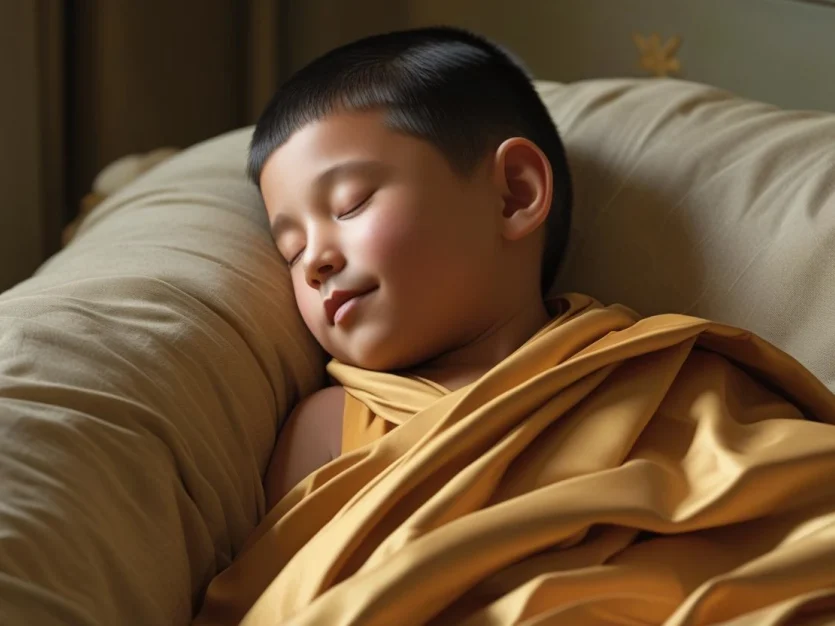The profound intersection between sleep and spiritual practice has captivated Buddhist teachers for millennia, with His Holiness the Dalai Lama offering some of the most illuminating perspectives on this essential human experience. His famous declaration that "sleep is the best meditation" represents far more than a simple endorsement of rest—it reveals a sophisticated understanding of consciousness states that bridges ancient wisdom with modern wellness needs.
Sacred Sleep: The Dalai Lama's Daily Practice
The Dalai Lama's daily routine exemplifies his deep reverence for sleep as spiritual practice. Rising at 3:30 AM for four hours of meditation and prayer, he maintains a strict schedule that culminates in sleep at 8:30 PM, describing it as "the most important meditation". This disciplined approach to rest reflects a fundamental Buddhist understanding that sleep serves as both restoration and spiritual opportunity. He reports sleeping "very soundly, without any sleeping pills, and enjoying very peaceful meditation", demonstrating how proper sleep hygiene supports deeper spiritual practice.
Buddhist Philosophy and Consciousness States
Buddhist philosophy traditionally recognizes sleep as one of three crucial consciousness states alongside waking and dreaming. The Dalai Lama teaches that practitioners must become acquainted with dreamless sleep, dreaming, and waking states to understand the deeper processes of death, intermediate state, and rebirth. This framework positions sleep not as unconscious downtime, but as active engagement with subtle levels of awareness. The clear light state experienced during deep sleep represents what Tibetan Buddhism considers a glimpse into our most fundamental nature of consciousness.
Dream yoga practices, extensively discussed by the Dalai Lama, transform ordinary sleep into spiritual cultivation. He explains that recognizing the clear light of sleep requires daytime meditation practice, stating that "without deeper meditative experience during daytime, it's very difficult to realize this dissolution as you fall asleep". Advanced practitioners learn to maintain awareness throughout all sleep states, with the tradition asserting that fully realized beings like the Buddha "literally never fell asleep" but maintained constant consciousness even while their bodies rested. This represents the ultimate integration of spiritual awareness with natural physiological processes.
The Dalai Lama's morning meditation practice begins immediately upon waking, capitalizing on the naturally relaxed state that sleep provides. He recommends a simple practice involving breath awareness, gratitude contemplation, and mind observation, noting that "from sleep, your body should already be relaxed". This seamless transition from sleep to meditation demonstrates how rest can enhance rather than interrupt spiritual development. His analytical meditation approach, which he credits with reducing anger and increasing patience, often incorporates reflection on sleep states and consciousness transitions.
Modern practitioners can apply these ancient teachings through practical approaches that honor both spiritual aspiration and contemporary lifestyle demands. Sleep hygiene principles align with Buddhist teachings, emphasizing consistent schedules, proper environment, and mental preparation for rest. The Dalai Lama's example shows how viewing sleep as sacred practice rather than mere biological necessity can transform our relationship with rest, making it a foundation for increased awareness, emotional balance, and spiritual growth throughout our waking hours.
